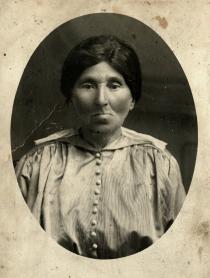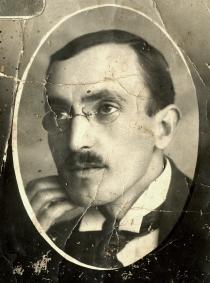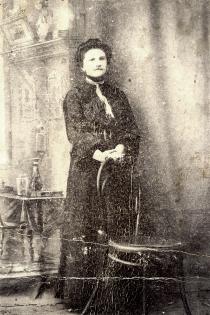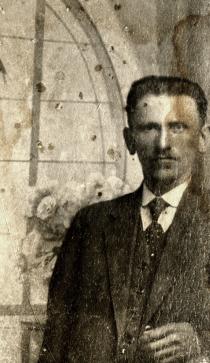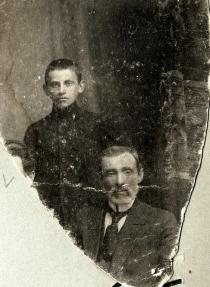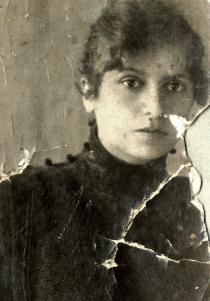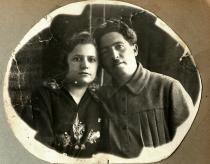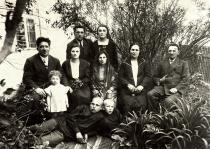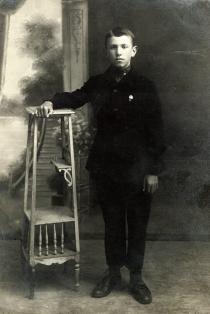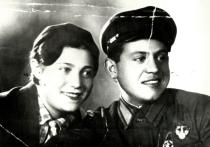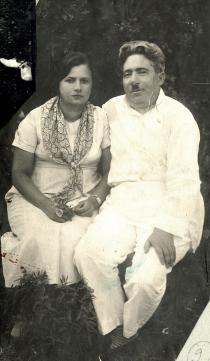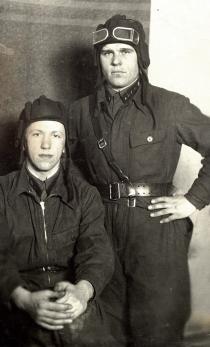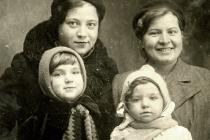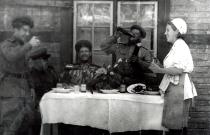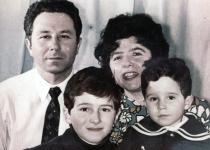My mother Anna Shoihet and my father Pinhos Shoihet. The photo was taken after their wedding in Berdichev in 1923 .
My father Pinhas Shoihet was born in the town of Stavische in 1890. He studied in cheder. He hated it, and he cried every time they took him there. There was a teacher in cheder that beat them all. Although my father didn't have a higher education he was very intelligent and read a lot. But still, when filling in a form he always wrote 'education: 4 years of cheder'. When he was 11 years old he went to work as a forester. He lived in a forester's hut. He worked there until 1911. In 1911 he was recruited to the tsarist army. He was in service until 1914. At that time the service term was 3 years and he was about to be released. But World War I began in 1914. So, he was in the army until 1917. When the Revolution of 1917 started he was in Poland. The military were deserting the army and my father ran away from Poland and came to his home in Stavische.
There were various military formations and gangs - the Whites, the Reds and the Greens - roaming around during this period. At one moment, my father told me, the Whites got all men together and sentenced them to execution. At this point the Red Army occupied the village. The Red Army freed all men and took them to their military units. That's how my father joined the Red Army, although he didn't belong to any movement. There was a nice commissar in his unit, a Russian man. He was very intelligent and had a tremendous influence on my father with his communist ideas. In 1919 my father became a member of the Communist Party. He served in the Red Kazak units. Their regiment was staying in Moscow for some time in 1919.
In 1921 their Red Kazak unit was billeted in Gaisin. The military were accommodated in the houses of the locals. My father got accommodation at my mother's house. By that time my mother had finished school and entered the Odessa Medical Institute. She was visiting her grandfather's at Gaisin after finishing the first year of her studies at the institute. This was a time of terrible lack of food. Her trip was not safe and grandfather Moisey said that he wouldn't let her travel anywhere. So, my mother wasn't quite sure what she was going to do. She met my father at that time. He was 10 years older. My grandmother liked him very much and she decided to introduce him to her sister.
My father liked my mother and he was spending much time with her. Their dates were very decent. When it was time to leave my father proposed to my mother to marry him in 1922-23 after he demobilizes. My mother was an ambitious girl and she told him that she wanted to go back to Odessa to continue her studies after the troubles were over. After my father's departure they started writing letters to one another. My father demobilized after some time and he got an assignment as chairman of the catering department in Berdichev. He came to Gaisin to my grandparents' house and said that he wanted to marry their daughter. They got silent for about five minutes and then my grandmother went to the kitchen to cook and bake for the occasion.
They didn't have a chuppah, as my father was a very progressive man and an atheist and he even thought they didn't have to register their marriage. My grandfather Moisey said to him: 'Well, there are new rules and new laws. We live in a new state. And we must observe its laws. You will go to Berdichev to start your own life there. What you should do is to go to the relevant office and find out how they register marriages. You need to remember your wedding.'

